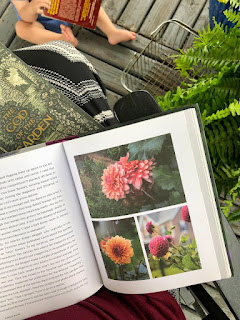After my husband’s funeral, my sister asked, “What should I say
to a grieving friend?”
“As little as possible,” I replied.
Many friends shared meaningful condolences at Ed’s funeral, but I’d
already heard the common Scriptures and platitudes during his
two-year cancer journey. I wasn’t in the mood to hear more. What
meant the most was the presence of friends.
We long to take away a friend’s pain, but nothing we can say can
make it better. Sometimes my attempts result in bumbling words that
sound coarse or ridiculous. Other times I may ignore a friend’s
hurt because I don’t know what to say. But turning a blind eye to
pain is even worse than saying the wrong thing.
Here are some things I’m learning about supporting a friend—whether
at a viewing, in a hospital room, or in a sympathy card.
What To Say:
“I am sorry.”
Don’t pretend it isn’t awful and attempt to sugar coat their
grief. Acknowledge their loss is devastatingly terrible, and you wish
it were different.
“I’m praying.”
If it is true, there are no better words. I often didn’t feel
capable of praying, and was relieved to know others were praying.
Consider praying out loud. One friend asked if she could pray for me
at the viewing. You can pray on the phone, in a text message, or in a
card.
We often forget to continue to pray for ongoing grief. I cried when a
lady I barely knew told me I was still on her prayer list, three
years after Ed’s funeral.
“I remember…”
Some of the most meaningful words spoken to me after Ed’s death
were memories of Ed, especially ways Ed had blessed their lives. Most
people want to talk about their loved one, so don’t avoid using
their name in conversation. I also loved when friends wrote down
memories for me to reread later.

What NOT To Say:
“At least…”
We all want to look on the bright side and count the blessings. “At
least it is treatable.” “At least he didn’t have to suffer
long.” “At least you had twenty years together.” “At least he
is in a better place.” Those things may be true, and some day your
friend may see the blessings, but saying “at least” can minimize
their pain or shame their current state of grief.
“God has a plan.”
When faced with a tragedy, we want some higher purpose. Acknowledge
that evil brought suffering to the world, and, though God can redeem
our suffering, He didn’t create a world with accidents, cancer, and
death.
“All things work together for good.”
We love stories of how God took something terrible and brought about
good through it, such as Joseph, Elisabeth Elliot, and Corrie ten
Boon. But when your friend’s life has crumbled, quoting verses like
these can also feel cold and heartless. I preferred verses that
acknowledged grief such as “God is near to the brokenhearted.”
“God won’t give you more than you can handle.”
The Bible shares stories of humanly impossible situations such as
Gideon, David, and Elijah. Cancer, widowhood, and solo parenting were
my Goliaths, and I needed assurance that God would walk with me
through events I couldn’t handle alone.
“You are so strong.”
I was glad I didn’t fall apart at Ed’s cancer diagnosis, but I
didn’t have a choice. I had to care for my six children even when I
felt like staying in bed. When told I was strong, I couldn’t be
honest about how weak I felt. Your friend doesn’t need more
pressure to pretend she is capable.
“Have you tried . . .”
Of course you want your friend to find a cure, but please don’t
give health advice unless you are asked. If you had the exact
same diagnosis and have personal experience that may be helpful,
share the information with a family member (not the sick person
themselves). Then support whatever decision they make.

What To Do:
Be Present
One of my friends said she didn’t know what to do or say because
she had never experienced deep grief. But when we were sitting by
Ed’s bedside on the last week of his life, she stopped in several
times and gave the gift of presence.
Cry
Jesus wept at the death of Lazarus, even knowing Lazarus’ death
would lead to resurrection and God’s glory. Never underestimate the
value of shutting your mouth and weeping with those who weep. After
Ed’s diagnosis, I had friends call on the phone who were unable to
speak through their tears. Not everyone is a crier—I’m not—but
at Ed’s viewing, I valued tears more than words.
Ask thoughtful questions
Asking, “How are you doing?” is better than ignoring their pain,
but consider asking specific questions such as, “What is the
hardest adjustment of losing your husband?” “How are you
sleeping?” “What worries do you have?” “What do you miss most
about your mom?”
Not everyone is comfortable sharing deeply, but many long for a
trustworthy friend who is willing to truly listen. These aren’t
questions to be asked flippantly when walking out of church. Choose
the right time, the right place, and the right words.
Help
When friends asked if we needed meals or other help, I often
declined. I was either too proud or bull-headed to accept help. But
thankfully, friends still brought food, sent checks, and helped in
many practical ways. I don’t know how we would have survived
without casseroles in our freezer and financial help.
A widow’s need for casseroles may abate, but the practical needs
around the house might grow in upcoming years. One of my widow
friends appreciates toolbox-toting friends who offer help with minor
house repairs.
Walking with a grieving friend can and should look differently for
each person, but if you share tears, a hug, and prayer, your friend
will feel loved, even if you don’t know what to say.
******
This post was shared first in Commonplace: In the Company of Friends, published by Daughters of Promise Ministry
I'd love to hear how friends walked with you in your stormy days.

































